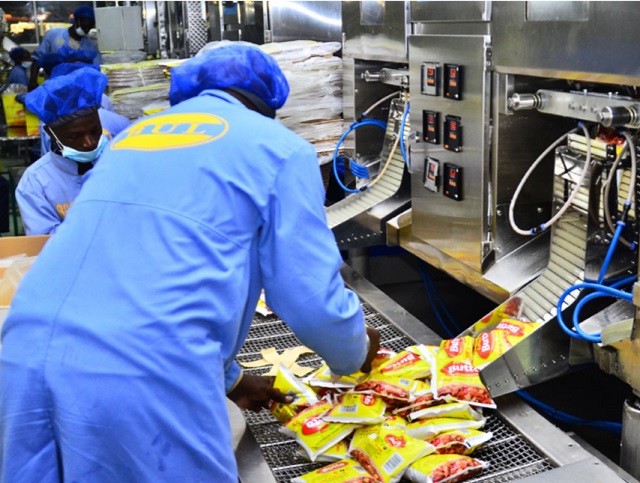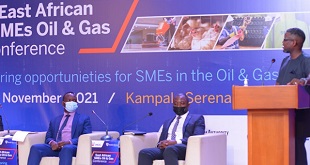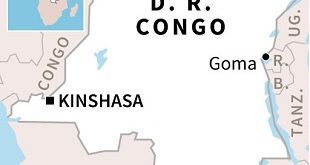
Why public investments and appointments are economically inefficient in multi ethnic societies
THE LAST WORD | ANDREW M. MWENDA | Game theory has the concept of the “Prisoner’s Dilemma.” This refers to a situation where two members of a criminal gang (John and David) are arrested by the police and held in two separate rooms. The police have scanty evidence to convince the judge to convict each of the prisoners to a maximum sentence of ten years. If both remain silent, the police can only secure a conviction of one year for each one of them. But if both of them choose to cooperate with the police, each will serve a sentence of five years. If one decides to cooperate with the police and the other refuses, the one who cooperates walks away scot free, the other serves ten years.
From the above scenario, the best option for John and David is for both to remain defiantly silent. The worst case for either of them is if the other defected and one remained silent. So, the police need to induce one of the prisoners to betray his colleague. They can offer John a deal: tell us the truths and be our witness, we shall let you free. If John cooperates with the police and David remains silent, David will serve ten years.
John has no access to David and fears that if given the same deal David will betray him. There is no honor among thieves. Besides John is not a brother or father to David. Their relationship is opportunistic based on robbery. There is little reason to be loyal. David faces the same incentive. Therefore, the most reasonable thing for both John and David is to cooperate with the police. So, at the end each gets five years in jail. But as we know, this is not the worst outcome. However, it is a less optimal outcome as each one of them will serve five years instead of one.
This is the challenge Uganda faces when making public policy or public investments or public appointments. We are a heterogenous country with many ethnic, demographic, ideological, gender and religious groups suspicious and jealous of one another or competing with one another. Any public policy and/or appointment or investment must balance the conflicting demands of each of these groups and placate the interests of powerful elites who act as their spokespersons. At the end of the day what we get is not the most optimal course of action or appointment but what is a politically acceptable and therefore socially optimal (as opposed to technically efficient) appointment or investment.
Take the example of building a paved road. If Uganda considered the economic rate of return, most funds would be committed to paving roads in Kampala City and the surrounding districts of Mukono and Wakiso. This is because these areas have the highest density of traffic and constitute the most productive part of the economy. Most working Ugandans who produce the largest share of our GDP (about 65%) live and work around these areas. The revenues generated from increased economic activity can be used to build roads in the rest of the country, at the right time.
We would need a few major trunk roads like one from Kampala through Bombo to Gulu, Lira and Arua connecting to DRC at Oraba with a link from Gulu to Nimule connecting to South Sudan; from Kampala through Jinja to Malaba connecting to Kenya and also branching off to Busia, and to Soroti connecting to Lira; from Kampala to Fort Portal, Kasese and connecting to DRC and from Kampala through Masaka and connecting to Tanzania at Mutukula, then going through Mbarara to Kabale and connecting to Rwanda at Katuna, but also branching off to Bushenyi and connecting to Kasese; and the final road would go to Hoima and connect to the oil fields.
If you look at the paved roads of Uganda, Kampala and its surrounding districts and with all their economic activity have been neglected. We have a paved road that runs from Moroto to Nakapiripirit and there are hardly any cars on it. Karimojong dry sorghum on the road. Even the road to Moroto does not have traffic to justify the investment. The road from Fort Portal to Budibugyo, from Fort Fortal to Kamwenge through Ibanda and Kazo to Lyantonde is also paved but cannot have as much an economic return as if we built a duo-carriage way from Nakawa to Port Bell. The road from Gulu through Nwoya to Nebbi, or from Kafu to Masindi, or Mbarara to Isingiro, or Ishaka to Kagamba, or Mubende to Kakumiro or Jinja to Kamuli etc. all have little economic return due to limited traffic.
But roads are not built for economic reasons alone. If the road is not built in Karamoja, people there may feel isolated from the rest of Uganda. To make it worse, if a road is built in Mbarara, the home of President Yoweri Museveni, without building one in Toro, the people of that great kingdom will claim Museveni is favouring his home area. To solve the problems of mutual suspicions, roads may be built to achieve social and political harmony and to represent a fair distribution of national investments and not necessarily to ensure an economic return. The same applies to public appointments – considerations of regional, ethnic, gender and religious balance will trump competence and merit.
This is why state intervention in direct economic production faced challenges in Africa’s multiethnic societies. When a cotton spinning factory was built in Lira as opposed to Gulu in the 1960s, the Acholi felt Obote was favouring his Lango region. Had Obote ruled longer, he would have built a factory in Acholi district, regardless of its economic viability there, in order to allay those suspicions. In our multiethnic societies public goods become sources of conflict over identity, making it difficult to follow economic logic and rationality in making economic investments.
The solution, even though a partial one, is to rely more on market forces to promote investment. For instance, if Coca Cola decides to build its soda factory in Mbarara as opposed to Kabale, the Bakiga will not accuse Museveni of favouring his region. When private investors begin to build most of their factories near Kampala instead of Jinja, Basoga will not accuse the NRM of favouring Baganda because its struggle was based on Luwero (Buganda). In multiethnic societies, identity trounces economic sense; government decisions generate political contestations and social conflict. The better to leave important investment decisions to private agents. One of the reasons Museveni has achieved political stability has been because of the privatisation and liberalisation of the economy.
****
 The Independent Uganda: You get the Truth we Pay the Price
The Independent Uganda: You get the Truth we Pay the Price



Andrew, you have done well in applying the Game Theory’s “Prisoner’s Dilemma” to help explain and understand the situation and the choices in Uganda. You though fell far short when it came your (main) partial solution i.e market forces. I admire economy in efficient allocation of resources; no economic model has proven better than the market so far. However, to suggest that even a public good, such as paved road whose utilization is non-rival and non-excludable, should be provided by the market is quite surprising! Goods such as roads are made with the aim of service provision prioritised over profit (market) which why most times, they are provided by governments. ‘Responsible and accountable governments’ try as much as possible to ensure fair allocation of public resources but also prioritize where they are utilized the most. So, if the current Ugandan government was responsible, it would focus more on Kampala, Mukono etc.
I meant that I admire the *market economy* not the *economy*…. But then again Andrew, why spend much time on allocation of roads and public appointments, but when it comes to providing a solution you use an irrelevant example of a private property (factory) whose products are entirely driven by the market? Is it because you don’t want to blame to the government for the level of negligence of city roads or..?
Another article that does not make sense with a bizarre conclusion.
In my view, [and I could be wrong] , the roads built were all decided not by market forces but with the tacit consent of M7. Those decisions may not make sense to Mwenda but they do to the one-who-makes-every decision for the country.
But I would like to give my two pence opinion about the conclusion ” M7 has created Political Stability …..”
Has M7 created Political Stability in Uganda? Seriously, Mwenda !! The President you support is keeping in power by (a) raping the Constitution and rendering it a useless piece of Law ; (b) Has undermined the Courts of Law by feeling them with Cadre Judges who do his bidding (c) Parliament is so toothless that anything M7 wants M7 gets without any challenge. The Opposition is weak in terms of numbers and any vocal opposition member who emerges is bribed with a cabinet post. Through gerrymandering, NRM has created many districts and with them women MPS with 97% being NRM (d) Uganda holds sham elections every 4/5 years whereby M7 intimidates the population , kills and tortures anyone whom he perceives as a threat to the “beast he killed” (e) Relies on the Army to oppress and Suppress. Ask Minister Anite who said it in clear terms “we have Magye”.
Uganda is a political powder keg which will explode as soon as M7 is no more. The marks of a good and visionary leader is one who creates a successful succession process and systems. That is not the case in Uganda when every decision begins and ends with Tibahaburwa. If M7 was to die today, there will be a stand-off between “his” Army and the Constitution [to put it mildly , if Mwenda’s friend – Muhozi does not grab power] The Constitution is very weak, after M7 raped and mutilated it] to provide any guidance about the Succession issue. I doubt if there is any Ugandan who thinks that under those circumstances Vice President Akulo will be sworn in as president (as the Constitution Provides).
Uganda is 80% likely to go the Somalia , Zaire , Yugoslavia way . When the strong man died the countries they were leading disintegrated. Watch this space
IS THAT THE POLITICAL STABILITY THAT MWENDA IS TALKING ABOUT???